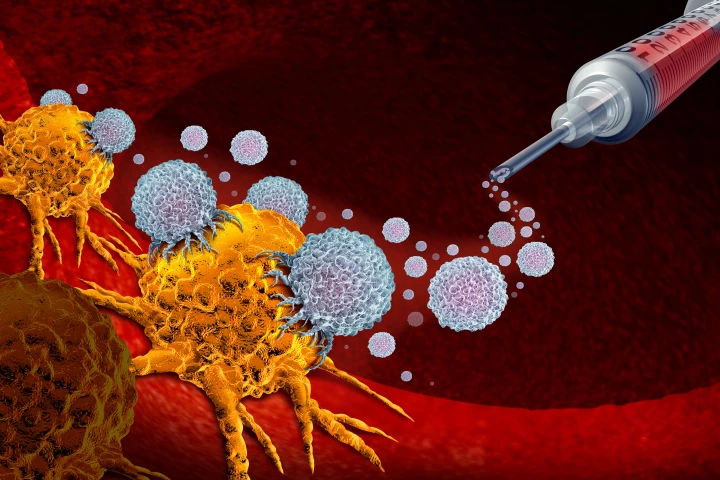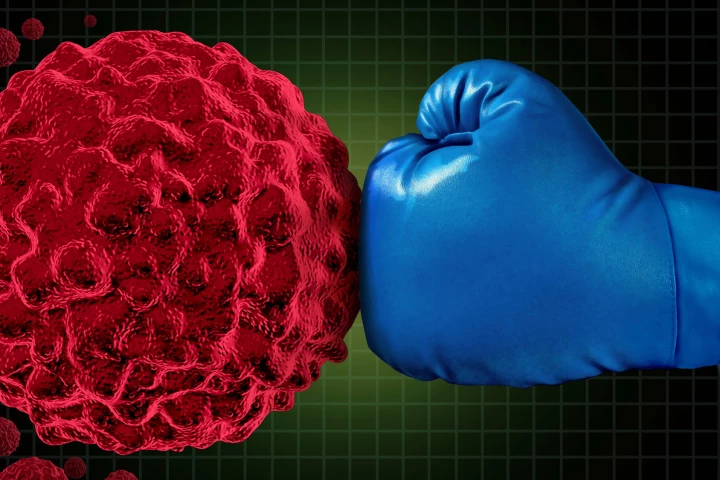Prostate cancer
-
A new drug combination to treat advanced recurring prostate cancer has shown remarkable results in a long-term trial, lowering the risk of death after eight years by 40.3%. What's more, the drug treatments are already FDA-approved on their own.
-
Scientists have identified a pair of pesky enzymes responsible for prolonging prostate cancer – which means we can potentially target them for quicker and more effective treatment of a condition that affects 1.5 million men around the world annually.
-
A test for pee-based markers of prostate cancer has previously relied on an uncomfortable first step. A new study has revealed that the now-available test remains just as accurate without it, paving the way from an easy in-home testing option.
-
Prostate cancer is usually treated with surgery and radiation therapy, but these can have drastic side effects. A new clinical trial is exploring the safety and efficacy of killing the cancer cells with a blast of steam.
-
The white button mushroom has cancer-fighting abilities, according to the results of a human clinical trial on the use of food as medicine. Not only does it slow tumor growth, but it also allows cancer-fighting immune cells to do their job effectively.
-
The US Food and Drug Administration (FDA) has green-lit the fast-tracking of an innovative personalized treatment for advanced prostate cancer following a promising clinical trial where the cancer disappeared completely in almost 40% of participants.
-
A study has found that, in mouse models of prostate cancer, a compound extracted from sandalwood oil was effective in slowing the onset and growth of tumors. Further research will explore whether it can be used to treat prostate cancer in humans.
-
A study has found that a compound created by the body’s breakdown of a cancer drug has therapeutic properties that could be used in combination with the original drug to boost prostate cancer treatment or as a novel treatment for Parkinson's disease.
-
A study has found that a rectal exam alone or in combination with a blood test doesn't improve prostate cancer detection, suggesting the exams could be omitted from prostate cancer screening in men who don’t have clinical signs and symptoms.
-
Researchers have identified the gene responsible for setting off a cellular chain reaction that causes prostate cancer to metastasize to the bone. The discovery could have significant implications for treating prostate and other cancers.
-
Researchers have uncovered the mechanism that drives an aggressive form of prostate cancer that doesn’t respond well to typical treatments. Importantly, they also identified a drug currently undergoing clinical trials that can potentially treat it.
-
Three new prostate cancer biomarkers have been identified that improve the visibility of cancer cells used by pathologists to grade the disease’s severity, which could help determine which patients require urgent treatment and those who don’t.
Load More











